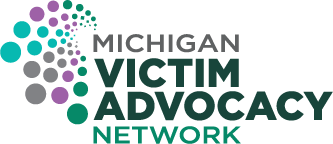Self-Care is Essential for Advocates
Burnout. Compassion fatigue. Vicarious trauma. Many of us have been there or know someone who has. And it’s no wonder because we work in crime victim advocacy, which is a workspace where trauma, illness, discrimination, violence, victim blaming, and other soul-injuring happenstances are things we hear about frequently. There are many things that must happen to change these things at all levels from policy and systems to organizations and individuals.
This month, we created a complication of resources and trainings from within the last year centered around self-care. These resources discuss changes that organizations and individuals can make to promote advocate wellbeing. As always, please don’t hesitate to contact us if you’re looking for more!

How can writing and journaling support survivors’ and advocates’ healing and wellness?
October 2022
National Resource Center on Domestic Violence (NRCDV) through VAW.net
This brief article explains expressive writing and how advocates and survivors can use it to promote healing and wellbeing. It talks about benefits of expressive writing and offers tips and prompts to begin.

#1Thing to #Care4Advocates Mind, Body, and Soul
October 2022
National Resource Center on Domestic Violence (NRCDV)
The first webinar in the series focuses on identifying how advocates are feeling about their work and their workplace, discusses the oppression advocates face – particularly advocates of color – and how it impacts mental health, and how to observe and communicate your capacity and that of others.

What Supervisors and Leadership Need to Know About Vicarious Trauma and Supporting Your Staff
May 2018
National Coalition Against Domestic Violence
This article highlights the importance and necessity of supporting advocate wellbeing at the organizational level and offers tips for leadership to mitigate the effects of vicarious trauma in their advocates.

Recovering from Burnout
Mind Tools
This article overviews what burnout is then deep dives into what people can do to recover with advice that includes identifying and addressing the specific cause(s), caring for the basics of the physical self, taking a vacation or time away, reassessing goals, setting boundaries, and focusing on positive thinking.

Crisis hotline advocate burnout panel
June 2022
Self-Care For Advocates
This recorded panel of crisis hotline advocates discusses the risk for burnout that hotline advocates often face and how they address those risks in their own work and give advice on how organizational leadership can support the wellbeing of crisis line advocates.

Vicarious Trauma – An Indigenous Perspective: Cultural Strengths as the Roots of Resilience for Health Trauma and Building Worker Wellness
January 2022
Learning Network
This webinar discusses collective historical and intergenerational trauma and provides information about vicarious trauma from an Indigenous-specific context. It discusses wellness approaches and culturally informed trauma approaches that providers can use when working with indigenous communities.
Looking for more vicarious trauma-related resources?
Looking for more vicarious trauma-related resources?
Check out last year’s compilation of resources: What To Know About Vicarious Trauma
